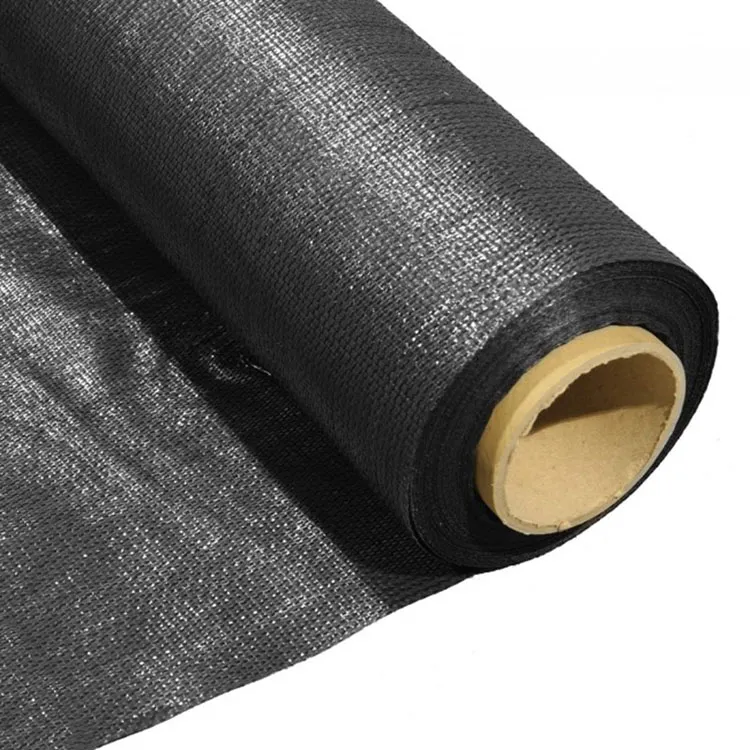The Importance of Filter Cloth in Industrial Filtration Systems
2024-11-06
In various industrial processes, separating solids from liquids or gases is a critical operation. Whether it’s in mining, wastewater treatment, food and beverage production, or chemical processing, effective filtration ensures product purity, maintains system efficiency, and meets regulatory standards. Filter cloth plays a pivotal role in this process, serving as the material that physically traps and removes unwanted particles from fluids. This blog explores the various types of filter cloth, its applications, and how to select the right one for your needs.
What is Filter Cloth?
Filter cloth is a woven or non-woven material used in industrial filtration applications to separate solid particles from liquids or gases. The material is often made from synthetic fibers, such as polyester, polypropylene, or nylon, but can also be crafted from natural fibers like cotton. The cloth is designed to fit into filtration systems like filter presses, belt filters, vacuum filters, and centrifugal separators, depending on the application.
The cloth works as a mechanical barrier that captures solids as a fluid passes through it. The efficiency and longevity of filter cloth depend on several factors, including the type of material, the weave pattern, and the specific needs of the filtration process.
Types of Filter Cloth Materials
Filter cloths come in a range of materials, each with unique properties suited to different filtration environments. The most common materials include:
1. Polyester Filter Cloth
Polyester is one of the most commonly used materials for filter cloth due to its strength, resistance to abrasion, and cost-effectiveness. It is ideal for general-purpose filtration applications and is particularly effective in liquid-solid filtration.
- Advantages: Strong, durable, and resistant to a wide range of chemicals.
- Applications: Mining, chemical processing, wastewater treatment, food and beverage processing.
2. Polypropylene Filter Cloth
Polypropylene is often chosen for its high chemical resistance and resilience in acidic or alkaline environments. It is lightweight and resistant to degradation from exposure to UV rays, making it suitable for outdoor applications.
- Advantages: Excellent resistance to corrosion and chemical exposure, lightweight.
- Applications: Wastewater treatment, chemical filtration, food production.
3. Nylon Filter Cloth
Nylon filter cloths are known for their high tensile strength and resistance to abrasion. While it’s more expensive than polyester and polypropylene, it is particularly useful in situations where durability and resistance to wear are essential.
- Advantages: High strength, abrasion-resistant, ideal for high-tension applications.
- Applications: Mining, petroleum, and chemical industries.
4. Polyvinyl Alcohol (PVA) Filter Cloth
PVA filter cloth is often used in situations requiring high filtration precision and fine mesh sizes. It is water-soluble and is used in specific applications, such as in the production of food or fine chemicals where contamination control is crucial.
- Advantages: Fine mesh capabilities, non-toxic, and chemical resistance.
- Applications: Food and beverage industries, pharmaceuticals, and water treatment.

Key Factors to Consider When Choosing Filter Cloth
Selecting the right filter cloth is crucial for optimizing filtration performance. Here are the main factors to consider:
1. Filtration Efficiency
One of the primary considerations is the pore size of the filter cloth, which determines its filtration capacity. A finer weave will capture smaller particles, but it may also lead to slower filtration speeds. It’s essential to balance efficiency with the desired filtration rate and pressure.
2. Chemical Resistance
The type of chemicals or solvents that the filter cloth will come into contact with should dictate the material choice. Polyester and polypropylene offer good resistance to many acids and bases, while nylon provides durability in harsh mechanical environments.
3. Temperature Resistance
In many industrial applications, the temperature of the fluid being filtered can be quite high. Selecting a filter cloth that can withstand the operating temperature without degrading or losing strength is crucial. Polyester, for instance, has a relatively low temperature resistance compared to nylon or polypropylene.
4. Durability and Strength
Filter cloth must endure abrasion, tensile stress, and other mechanical stresses depending on the filtration process. Fabrics like nylon or polyester are often chosen for their high tensile strength and ability to resist wear over long-term use.
5. Mesh Type and Weave Pattern
The mesh size and weave pattern play a key role in determining the cloth’s filtration capabilities. Common weave types include:
- Plain Weave: Most commonly used for general filtration applications.
- Twill Weave: Provides higher durability and is often used for heavy-duty applications.
- Satin Weave: Used for more precise and fine filtration needs.
A tight weave will offer finer filtration but may cause increased pressure and reduced flow rate, while a looser weave allows faster flow but with reduced efficiency.
Applications of Filter Cloth
Filter cloth is used across a variety of industries due to its versatility and effectiveness. Here are some key applications:
1. Wastewater Treatment
In wastewater treatment, filter cloths are employed in belt filter presses, vacuum filters, and dewatering processes. These filtration systems remove contaminants from sewage and industrial waste, producing cleaner water and reducing environmental impact.
- Function: Filter cloths remove solid waste from liquid effluent.
- Industries: Municipal water treatment, industrial effluent treatment.
2. Mining and Mineral Processing
Filter cloth is essential in the mining industry for separating slurry (mixture of water and particles) into solids and liquids. It’s commonly used in filter presses to extract valuable materials from ores.
- Function: Separates solids from liquids to recover valuable minerals.
- Industries: Gold, coal, and copper mining.
3. Food and Beverage Industry
In food production, filter cloth is used in the filtration of oils, juices, and liquids to ensure product clarity and prevent contamination. Filter cloths are also used in brewing processes to clarify beer and remove sediment.
- Function: Clarifies liquids, removes impurities.
- Industries: Dairy, beverage manufacturing, oil filtration.
4. Pharmaceutical Industry
In pharmaceuticals, filter cloths are used to ensure the purity of liquids, such as medicines or chemicals. The filtration process helps in the preparation of sterile and contaminant-free solutions.
- Function: Ensures purity in pharmaceutical products.
- Industries: Drug manufacturing, vaccine production.
5. Chemical Processing
In chemical plants, filter cloths are used in systems that separate fine particulates from chemicals or solvents, ensuring both safety and efficiency in the production process.
- Function: Removes solid contaminants from chemical mixtures.
- Industries: Chemical manufacturing, petrochemical processing.
How to Maintain and Extend the Life of Filter Cloth
To maximize the life and efficiency of filter cloths, proper maintenance is necessary. Here are a few tips:
- Regular Cleaning: Filter cloths should be cleaned periodically to prevent clogging and maintain filtration efficiency. Cleaning methods depend on the type of material and the contaminants present but can include backwashing, rinsing, or using specialized solvents.
- Inspect for Wear and Tear: Regularly inspect the filter cloth for signs of damage, such as holes or fraying. Replace damaged sections to ensure optimal performance.
- Proper Storage: When not in use, store filter cloths in a dry, cool place away from direct sunlight to prevent material degradation.
Conclusion
Filter cloth is a crucial component of industrial filtration systems, enabling the effective separation of solids from liquids or gases. The material choice, weave pattern, and mesh size are key factors that determine the filter cloth’s performance and suitability for specific applications. Whether you're working in wastewater treatment, food production, or mineral processing, selecting the right filter cloth will improve filtration efficiency, extend the lifespan of your equipment, and ensure that your processes meet both regulatory and performance standards.
By understanding the characteristics and maintenance of filter cloths, industries can enhance their operational efficiency, reduce costs, and minimize environmental impact.


